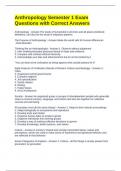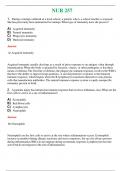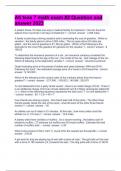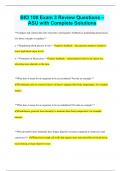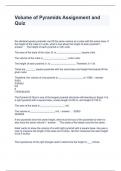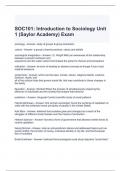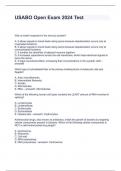Exam (elaborations)
Anthropology Semester 1 Exam Questions with Correct Answers
- Course
- Institution
Anthropology - Answer-The study of humankind in all times and all places (textbook definition), can also be the study of migratory patterns The Purpose of Anthropology - Answer-Make the world safe for human differences -Ruth Benedict Thinking like an Anthropologist - Answer-1. Observe with...
[Show more]
